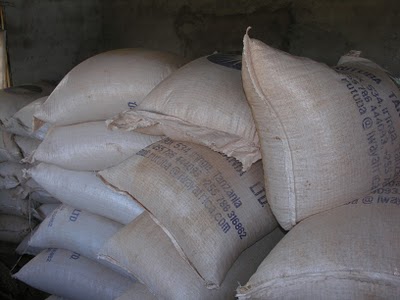
The Grain Millers’ Association of Zimbabwe (GMAZ) has lauded the government’s cancellation of old import and export permits, saying it augurs well for the protection of the local agriculture sector presently reeling from cheap imports. MTHANDAZO NYONI OWN CORRESPONDENT
On Monday the Agriculture, Mechanisation and Irrigation Development ministry issued a statement proclaiming that all running import and export permits had been cancelled or recalled with immediate effect.
It said there was need to revise the rules and regulations governing the importation and exportation of agricultural produce.
GMAZ chairperson Tafadzwa Musarara told Southern Eye Business the decision by the ministry to recall current permits and replace them with new permits would eliminate the prevalence of counterfeit permits that they blame for the glut of imported maize meal and flour at the detriment of local industries.
Musarara said the development to recall current permits was a noble idea as they have been short-changed for a long time.
“GMAZ welcomes the latest decision by the Agriculture ministry to recall current permits and replace them with new permits which are endowed with security features,” Musarara said.
“This move, in our view, will reduce or eliminate the prevalence of counterfeit permits that are responsible for the glut of imported maize meal and flour to the detriment of local industries and the crop farming sector,” he added.
Musarara said the new scheme of arrangement would entail permits were not be given to importers, but sent to Zimbabwe Revenue Authority (Zimra) border offices.
- Chamisa under fire over US$120K donation
- Mavhunga puts DeMbare into Chibuku quarterfinals
- Pension funds bet on Cabora Bassa oilfields
- Councils defy govt fire tender directive
Keep Reading
“While we applaud the Agriculture ministry for making such a noble decision to eliminate cases of fake permits, we hold our breath on how Zimra is going to be transparent in this new arrangement given its soiled history of corruption and chicanery at border posts.
“Further, we also appeal to ministry to expedite the process so that our members’ trucks which are currently at the border are not delayed and milling plants undersupplied,” he added.
GMAZ is aiming to intensify contract farming of maize and wheat and strongly believes that the country needs to have a cereal farming sector that is able to sufficiently provide for local consumption requirements.
Cheap imports of maize meal from South Africa were flooding the markets at the expense of local milling industry, Musarasa said, adding that it has had a negative impact on the ability of millers to buy a sizeable quantum or all of the available maize at viable prices when local maize harvest starts.










